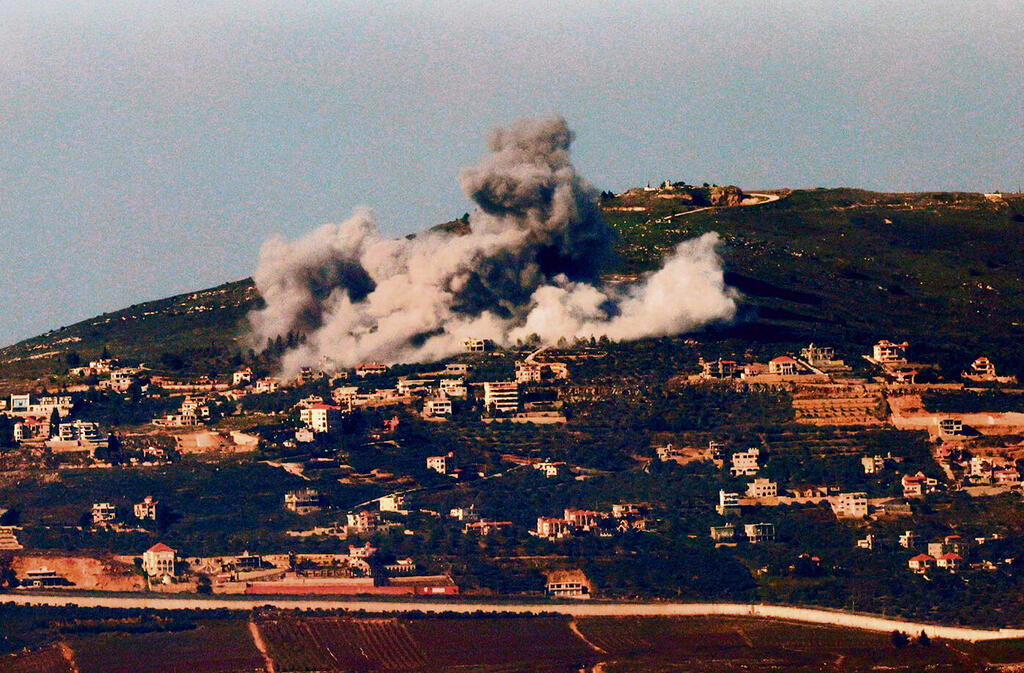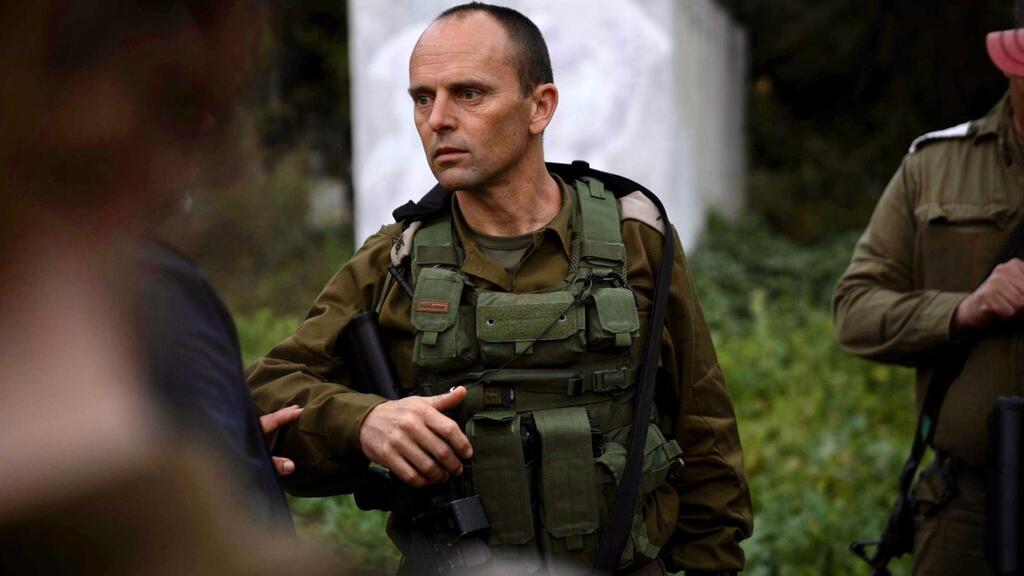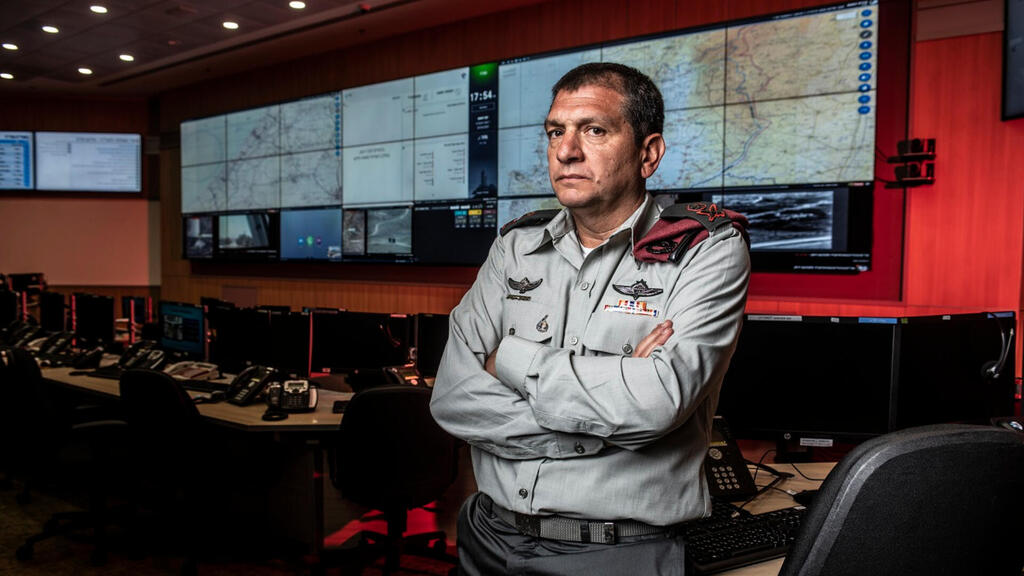In each operations center within the Northern Command, a sign proudly displays the mission: "Protecting the northern communities." During a nighttime tour of the border, one can witness the presence of this sign along with the various communities, outposts, and newly established army positions. However, it becomes evident that the sign not only represents a tangible reality but also perpetuates a somber truth. "Indeed, I am committed to safeguarding the north and fulfilling my duty," expresses a high-ranking IDF officer, "but without residents, one cannot help but question the purpose."
Read more:
The stark reality is that Galilee no longer resembles its once flourishing state, but rather resembles a war-torn zone, with uncertainty surrounding who truly holds control. Those with experience fighting in southern Lebanon during the 1990s will be instantly reminded of those days as they witness the army maneuvering on the rear slope of the Safed area, taking precautions to minimize the risk of being targeted by a Hezbollah anti-tank missile that supposedly targets solely military objectives.
However, as recent events have demonstrated, this approach no longer guarantees safety. The tragic loss of Barak Ayalon and his late mother Mira from Kfar Yuval serves as a painful reminder of the flawed effectiveness of this strategy. In response, the IDF did not retaliate against civilian targets or launch a forceful attack to clearly communicate the red lines had been crossed. This showcases yet another indication of the erosion of deterrence, which had already suffered significant damage on October 7th and throughout the challenging preceding year.
A different, less joyful Galilee
A short distance after encountering traffic in Safed, drivers receive a clear instruction to switch off their vehicle headlights. This directive is not issued at the very edge of the road, but rather amid two well-known and cherished vineyards that have captivated wine enthusiasts. This particular area used to attract numerous travelers seeking to immerse themselves in an ambiance so captivating that it didn't require the aid of alcohol to intoxicate the senses. When the convoy eventually halts on the roadside, great care is taken to select a discreet and concealed location. Individuals don vests and helmets, affix black masking tape onto their car headlights, and equip themselves with night vision devices. It is worth noting that during that time, the era of cell phones had not yet arrived, so there was no need to power them off.
There is one more notable distinction to mention: previously, this entire process was required before entering Lebanon. However, it is now conducted before entering the sovereign territory of the State of Israel, which can more accurately be referred to as the new security zone. It saddens me deeply to witness the transformation from tourists' ATVs to tanks and military jeeps, and the deployment of fortified positions for the fighters within the valleys, as per the directives of Brigadier General Shay Calper, the commander of the Galilee Division.
Calper is a man intimately acquainted with the looming nightmare of a Radwan force invasion. Despite the military's efforts to push this significant threat a few kilometers away, it is certainly not enough to assuage his concerns. On the morning of October 7th at 08:00, he swiftly sprang into action, declaring a state of war and mobilizing all emergency reserve forces.
His fear, and by no means his sole one, was that Hezbollah is a willing participant in Hamas' scheme and would execute a similar strategy in the north. However, the Lebanese organization is far more prepared, skilled, and lethal in comparison. Specifically, 15 "Fujim" units, small battalions comprising anywhere between 150 to 300 seasoned fighters who have honed their craft in the Syrian conflict, stood ready to strike. Their sole focus is offensive operations, whereas other battalions are tasked with defending against infiltrations by enemy soldiers, drones, and the like. The IDF had devised a dedicated plan to confront this formidable challenge, but Calper persistently cautioned that it would not suffice.
Calper, a seasoned veteran of the Golani Brigade who even commanded the esteemed Brown Brigade, was renowned within the IDF as a leader who never allowed himself to be distracted by trivial matters. A remarkable incident serves as a testament to this trait: a few months before the war, in a packed hall filled with the highest-ranking officers in the IDF, Calper fearlessly confronted Major General Aharon Haliwa, head of the Intelligence Directorate.
During this confrontation, Calper directly challenged Haliwa's assertion that the size of the forces at hand was sufficient to counteract a surprise attack. Taking the stage, he emphatically warned that without prior warning, the mission to protect the northern communities would remain an empty slogan. Haliwa, displaying his characteristic paratrooper bravado, promptly dismissed Calper's concerns and even declared that if such a scenario were to unfold, he and the General Staff would resign. Since the war began, the memory of this confrontational meeting has continued to resonate strongly with those present.
Contrary to the wishes of the paratroopers' clique within the senior command, Calper managed to rise to his current position, despite the formidable experience he gained as a Golani patrol commander during the Second Lebanon War and his previous role as a commander in Operation Guardian of the Walls, serving under Brigadier General (res.) Chico Tamir. The paratroopers repeatedly attempted to relegate him to staff positions, much like they did with Brigadier General Ofer Winter and Brigadier General Roman Goffman, among others, deeming them "excessively aggressive." When Goffman voiced his frustration, stating that the failure to utilize one's powers results in clinical death, laughter resonated within the Defense Ministry forum, much akin to the response Calper received during his confrontation with Haliwa.
The outpost we had the opportunity to visit has endured multiple attacks in the past, but due to the exceptional professionalism of its personnel, casualties have been avoided. The command to "brace for impact" serves as a crucial warning, providing approximately 15 seconds for individuals to seek shelter. For an impressive span of 103 days, the outpost has been manned by the valiant soldiers of the Alexandroni unit, Golani's elite reserve unit.
As early as 19:00 on the evening of October 7, they assumed their positions, taking over from the active-duty Kfir brigade. Since then, they have tirelessly set up nightly ambushes within our territory, meticulously identifying infiltration routes and vulnerable areas. These operations occur regardless of inclement weather conditions, enduring rain and cold. Their primary view of the surrounding environment is often limited to what can be observed through their cell phones, if those are even available.
Battalion commander, Lt. Col. (res.) Maayan Feldman bears the weighty responsibility of leaving behind six children and a wife on the verge of giving birth to their seventh. However, amid these personal challenges, not a single complaint escapes his lips. Quite the opposite, both he and the dedicated fighters under his command possess an unwavering determination to persevere, even if it means crossing into Lebanon. Their motivation stems not from a reluctance to engage in warfare, but from their resolute mission to restore the displaced residents to the safety of their homes. As Feldman eloquently expresses, "Within this land lies a portion that remains beyond our grasp. We must eliminate this threat and reclaim control."
IDF attacks in southern Lebanon
(Video: IDF Spokesperson's Unit)
It has come to light that the company responsible for holding the front line takes proactive measures by generating their own targets, rather than waiting for directives from higher command or division. They employ a combination of drones, specialized binoculars, and advanced observation methods to identify and assess potential threats independently. As a testament to their resourcefulness, just yesterday they successfully obliterated a Hezbollah position, utilizing a tank, that had been launching rockets towards the northern region. This display of precision and effectiveness has rekindled the confidence of senior leaders, prompting a renewed belief in the significance of ground maneuvers, both in the ongoing conflict in Gaza and in their current operations.
Aiming to return residents home clashes with a defiant Hezbollah
In a significant statement made yesterday, the Minister of Defense emphasized the imperative of readiness in anticipation of a potential escalation in the security situation in the northern region. He underscored the necessity of employing military measures to enforce the safe return of the displaced residents to their homes. Echoing this sentiment, the Chief of Staff also recently conveyed comparable remarks, further emphasizing the gravity of the situation at hand.
In addition to the aforementioned observations, reports emerging from Lebanon indicate a lack of advancement in the negotiations aimed at dislodging Hezbollah from the border. Truth be told, a notable number of high-ranking officers within the IDF harbor skepticism regarding the prospects of any such agreement, even if it were to materialize.
One officer poignantly asserts, "Beyond the physical barrier lies a formidable military force, deeply rooted in Shia religious ideology. Prudence dictates that we cannot afford to take unwarranted risks. While Hezbollah may have withdrawn its physical presence, its unwavering determination remains intact, as evidenced by its declaration to persist in the fight until the conclusion of the Gaza conflict. Can we truly afford to be complacent in such a precarious situation?"







